Kinpira gobo is a very popular side dish (okazu) of Japanese food. Despite its name, nowadays, people not only use burdock roots for Kinpira gobo, but also carrots, mushrooms, radish skins, eggplants, and other vegetables. However, it might surprises you that not every Japanese knows the meaning of its name. In this article, we would like to introduce about the meaning of “Kinpira Gobo”, etymology, history and recipes to make this dish.
What is Kinpira gobo?
“Kinpira gobo” refers to burdock roots sliced or chopped into bamboo leaves in Japan. Kinpira is a type of Japanese side dish with stir-fried finely chopped vegetables in a salty-sweet sauce with sugar and soy sauce. They also sometimes seasoned it with chilli peppers for some spiciness. If it has the same spiciness and the texture is crisp, you can use not only burdock but also lotus root or radish. Locals incorporated ingredients like burdock, lotus root, and carrots, although thickly peeled radish skin, yacon, and udo. The seasoning consists primarily of mirin (or sake, sugar) and soy sauce.
What is Gobo?
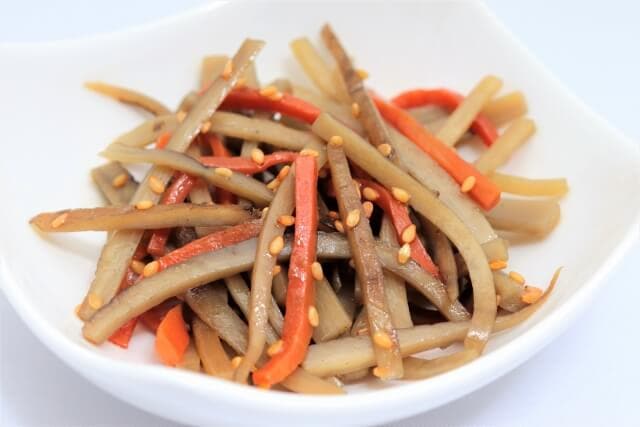
Gobo or Burdock root is a biennial herb distributed from northeastern China to Europe, including Europe, the Himalayas, and China. In the Japanese archipelago, wild products can be seen only in some parts of Hokkaido. Japanese eat this as a kind of vegetable and root vegetable. In the Osaka dialect, they call it “Gonbo”. Today, kinpira (gobo) burdock root and other gobo roots are used in New Year’s dishes in some areas, making it one of the most familiar ingredients for Japanese people.
Etymology
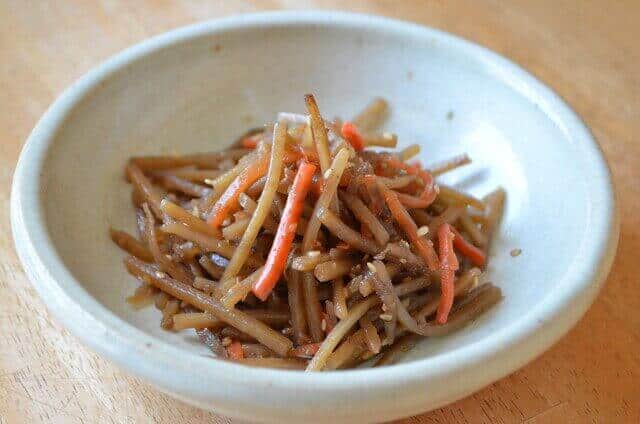
Kinpira (金平 or んぴ) is a Japanese cooking style summarized as the technique of “sautéing and then simmering”. In short, kinpira means “double cooking” in Japanese. Gobo is the Japanese name for burdock root. So in English translation, it is what they call the “Braised burdock root”.
The name “Kinpira” derived from “Kinpei Sakata,” who is the main character of the old joruri “Konpei Joruri,” which was popular in the Edo period, and who is the son of Kintoki Sakata, who is famous for Kintaro. The firm texture and crunchiness of burdock and the spiciness of chilli peppers compared to the strength and bravery of Kinpei Sakata, and it came to be called ‘Kinpira Gobo’.
Kinpira gobo History
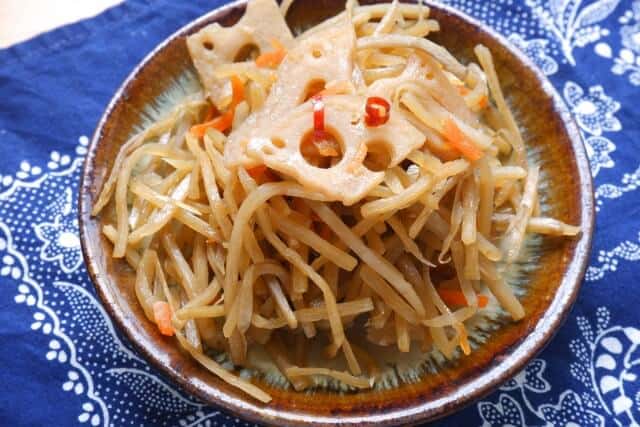
The name “Kinpira” derived from “Kinpei Sakata,” who is the main character of the old joruri “Konpei Joruri,” which was popular in the Edo period, and who is the son of Kintoki Sakata, who is famous for Kintaro. In addition, burdock root is one of the Edo Tokyo vegetables handed down since ancient times and is a traditional vegetable along with Kyoto vegetables and Kaga vegetables. In particular, the Takinogawa burdock, named after the place where they cultivated it at the time, Takinogawa Village, has a long history.
The samurai recruited for Sankin Kotai cultivated the seeds of vegetables they brought from their hometowns, improved their varieties, and established them as Edo vegetables along with Nerima daikon radishes. More than 90% of the burdock grown in Japan is a variety that inherits the blood of Takinogawa burdock, improved over many years.
Kinpira gobo Recipe
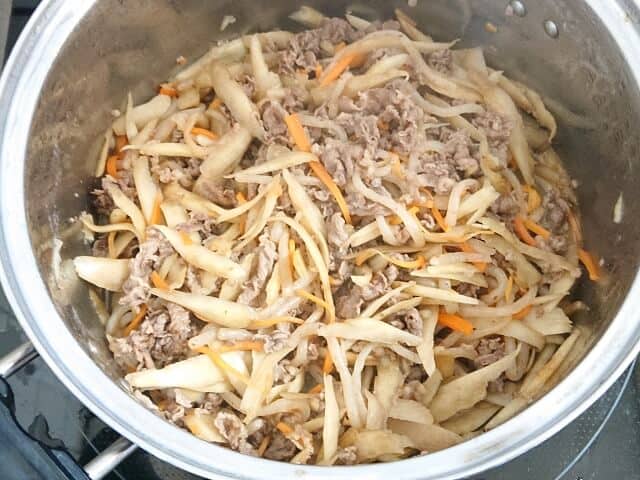
Kinpira gobo Ingredients
| Ingredients of Kinpira gobo for 2 people | Measurements |
|---|---|
| Burdock root (cut into 5cm lengths and soak in water) | 70g |
| Carrot | 30g |
| Red chilli pepper (seeded) | 10g |
| Water | 50g |
| Soy sauce | 10g |
| Sugar | 14g |
| Liquor | 7g |
| Sesame oil | 14g |
| White roasted sesame | 3g |
How to make Kinpira gobo
Put the sesame oil and red chili peppers in a pan, heat over high heat, and stir-fry the burdock root. Add carrots and fry some more.
Add water, soy sauce, liquor, and sugar and simmer to evaporate the juice. When the juice is almost gone, turn off the heat and let the flavors blend.
Arrange in a bowl and sprinkle with toasted white sesame while twisting.
Health effects of eating Gobo
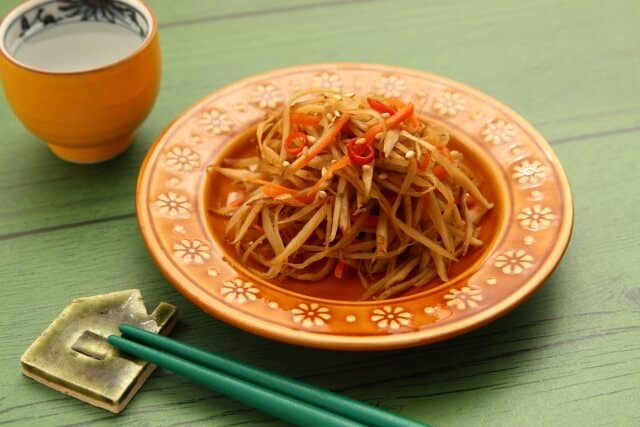
Among the nutrients contained in burdock, dietary fibre is typical. Dietary fibre cannot be digested or absorbed in the small intestine, so it reaches the large intestine. You can expect it to not only prevent constipation and regulate the intestines but also to prevent lifestyle-related diseases such as suppressing the rise in blood sugar levels and lowering blood cholesterol levels. Gobo is rich in minerals such as potassium and magnesium.
Relieve constipation
Speaking of burdock, the first thing that comes to mind is “dietary fibre”. There are water-soluble and insoluble dietary fibre (whether it dissolves in water or not), and burdock contains both in abundance.
Suppresses rise in blood sugar level
It suppresses rapid eating and overeating, so it slows down the rise in blood sugar levels.
Lower cholesterol
Due to its adsorptive properties, it adsorbs bile acids and cholesterol and excretes them from the body.
Seasoning of Kinpira gobo
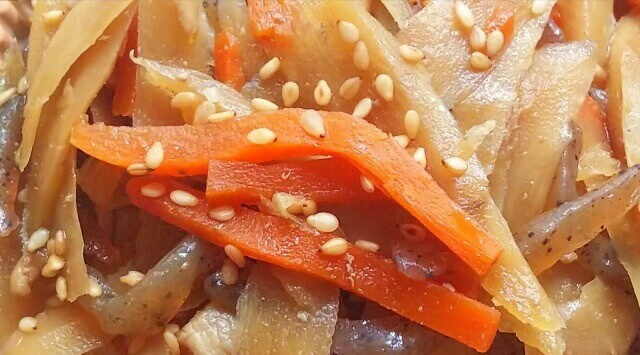
Sweet and spicy kinpira burdock seasoning
The golden ratio for seasoning is 3 sake: 2 soy sauce: and 1 sugar. The numbers are also “3, 2, 1”, and I’m glad that it’s easy to remember. If you remember this, you will be able to make basic kinpira burdock anytime.
With mentsuyu or sukiyaki sauce
If you use mentsuyu, just add an appropriate amount of mentsuyu and a little sugar at the seasoning stage. The mentsuyu contains the umami and sweetness of the dashi stock, so that alone adds to the flavour.
Use hawk’s claws and chilli peppers
If you want to add a bit of spiciness, adjust the number of hawk’s claws and chilli peppers. It might be a good idea to refer to the golden ratio for the basic seasoning and add plenty of spiciness to your liking.
Calories of Kinpira gobo
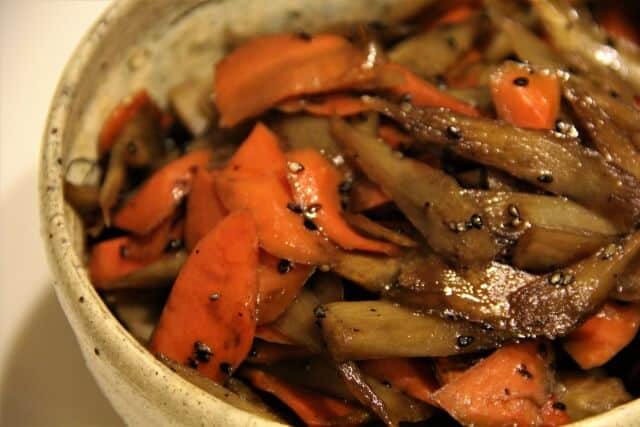
One serving (80g) of kinpira gobo contains about 100 kcal. Some people may feel that the calories are surprisingly high even though it’s just vegetables. The first reason is that burdock root is not that low in calories. By the way, lotus root, often used as kinpira, has the same calories as burdock and is relatively high in calories for a vegetable.
Where to buy Kinpira Gobo
Saito Gobo Store (斉藤牛蒡店)
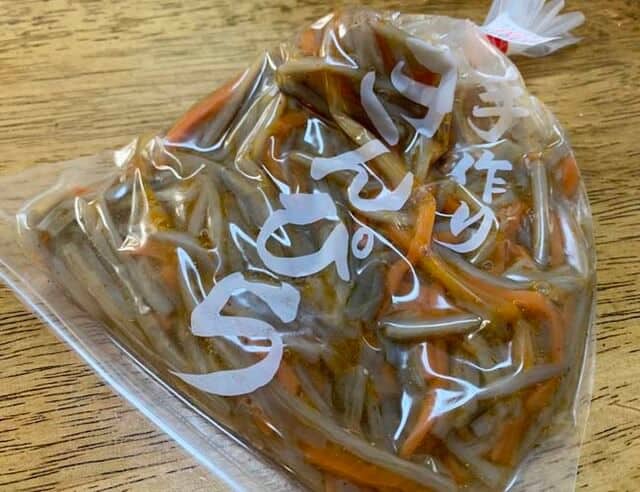
“Saito Gobo Store” is a burdock direct sales store dedicated to burdock for 65 years since its establishment. Their “Legendary kinpira gobo”, is on sale. Cooked ones are 200 yen, and uncooked ones are sold for 200 yen to 500 yen depending on the size. Their kinpira gobo is soft yet crunchy and has a distinct burdock flavor, accented with a faint chilli pepper flavour.
Takeaway
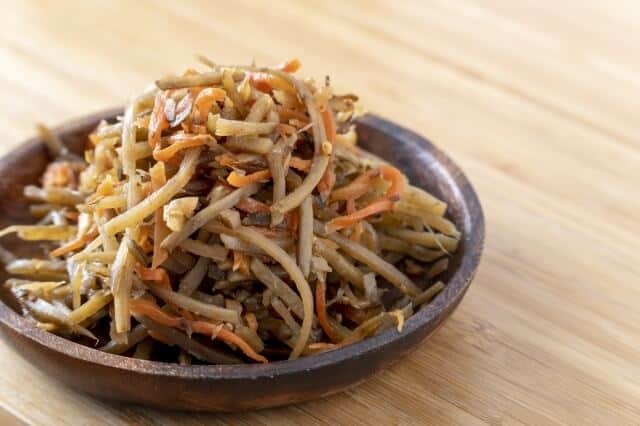
Kinpira Gobo is a delicious Japanese side dish made by stir-frying burdock root (gobo) and carrots with a savoury-sweet sauce. In Japan, Korea, and some Asian countries, burdock has been used for a long time and is used daily in traditional meals. Burdock symbolizes masculinity because it has a straight shape and is deeply rooted in the ground as a certainty and dignity. This kinpira gobo is a side dish to a meal, added to a bento as a side dish to balance nutrition and make the meal perfect.
You can also try other healthy side dishes from Japan, such as Chorogi, Tadukuri, and many more.


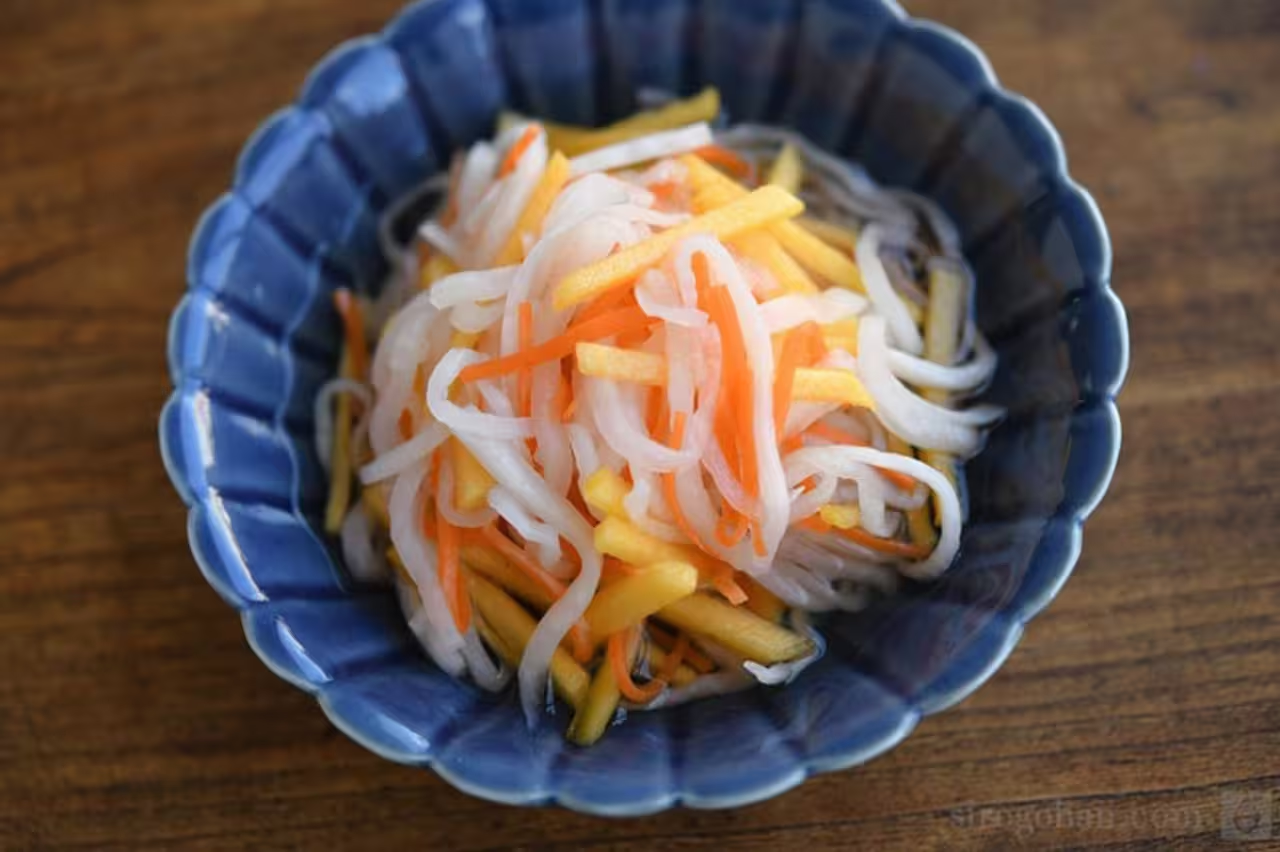
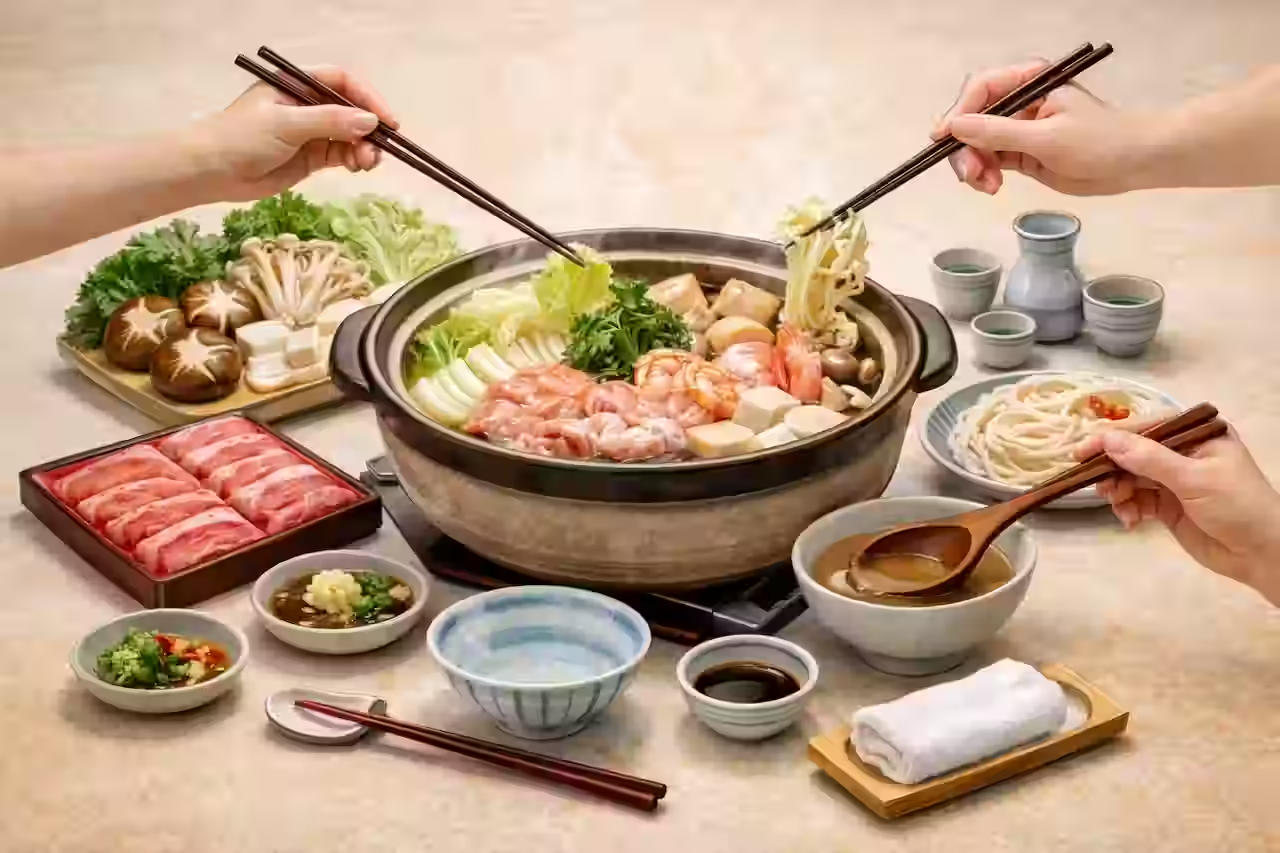
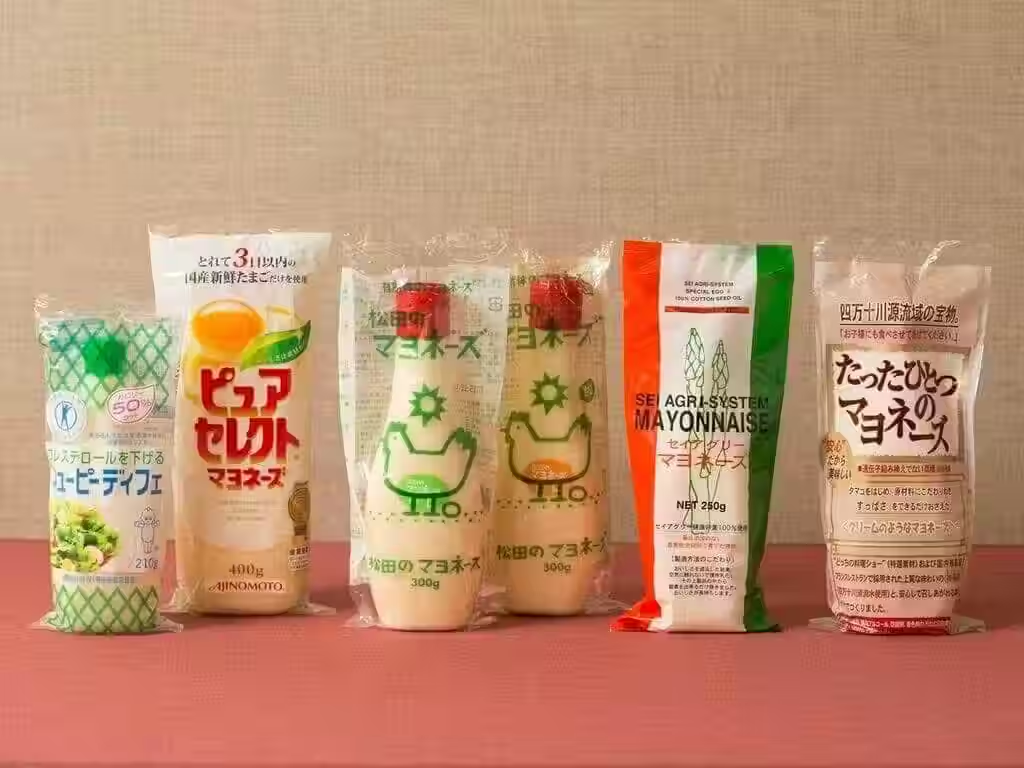

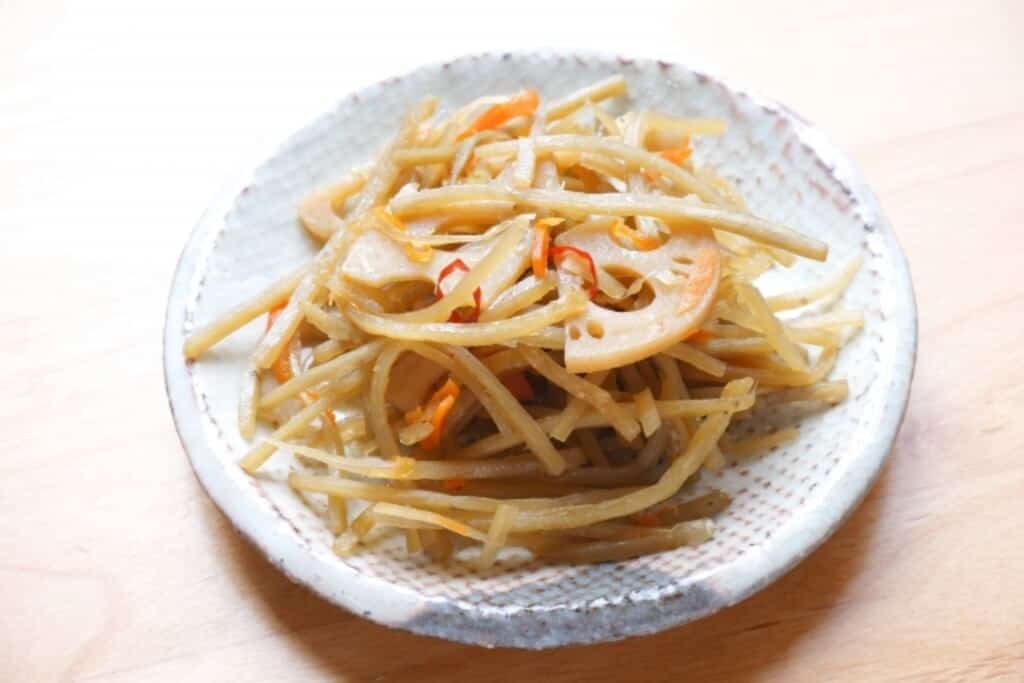
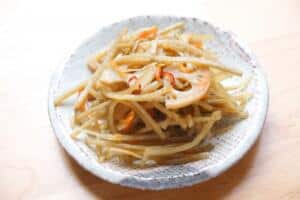
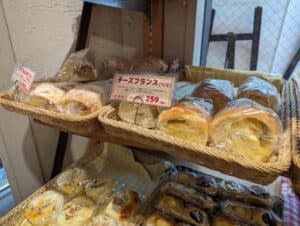
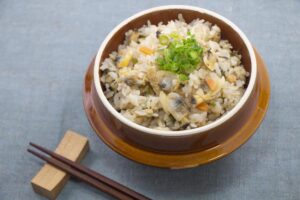
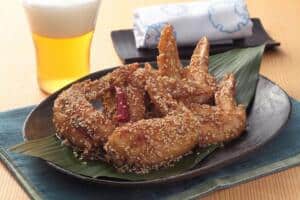
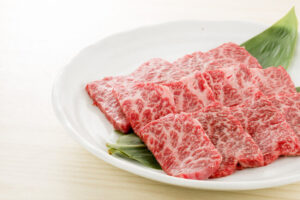
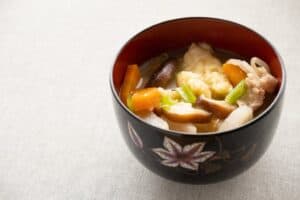
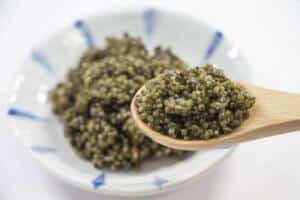
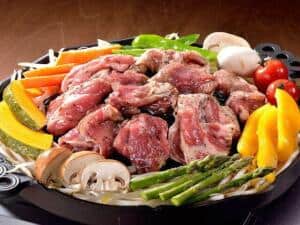
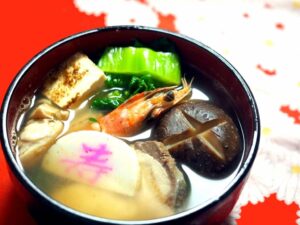
Comments